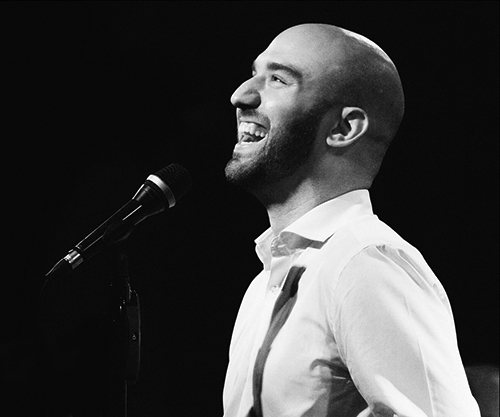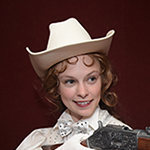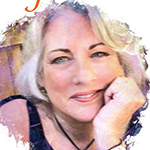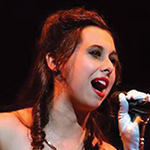Ari Axelrod
A Place for Us: A Celebration of Jewish Broadway
Birdland, NYC, May 13, 2024
Reviewed by Bart Greenberg

When Ari Axelrod premiered his show A Place for Us: A Celebration of Jewish Broadway seven years ago downstairs at the Birdland Theater, he was an extremely talented newcomer with much youthful energy. Taking the stage upstairs at Birdland Jazz Club, he presented a new version of that program with all the authority of an experienced performer who is in command of the stage. He shared the stage with five skilled musicians and a guest vocalist, and there was no doubt as to who was in charge of the evening. The audience responded with the relaxed commitment that can come when they know they are being taken on a great journey with an assured guide.
The program began with a beautiful cello solo by Mairi Dorman-Phaneuf on “Hatikvah,” the ancient melody that serves as the Israeli national anthem; it seamlessly blended into Axelrod’s first solo number, “Hope,” by Jason Robert Brown. The natural affinity the singer has for this songwriter’s works was more emphatically demonstrated later in the show with the hysterical “Shiksa Goddess” and the passionate “This Is Not Over Yet” (that one was shared with the gifted vocalist Lee Harrington). He celebrated earlier musicals both by and about Jews, such as Fiddler on the Roof with “Miracles of Miracles” (Sheldon Harnick/Jerry Bock), which he delivered with thrilling speed and perfect diction, and Jerry Herman’s Milk and Honey with its title tune as well as the haunting love song, “I Will Follow You.” This one was supported by a gorgeous musical arrangement by Mike Stapleton, who was the music director and pianist for the evening.
In an amusing side note, Axelrod gave examples of the strong influence of Jewish music on the ultra-WASP of the golden age Cole Porter, from the “da-da-das” of “My Heart Belongs to Daddy” to the haunting minor key used for “So in Love,” in which Axelrod captured the longing and sexiness of the song. He then noted the importance of family and education in Jewish life and illustrated his point with the works of three generations of writers who belonged to the same clan. These were Richard Rodgers with a brilliantly acted “Some Enchanted Evening” (lyrics by Oscar Hammerstein, II), Mary Rodgers Guettel with an amusing “Shy,” and Adam Guettel with the intensely poetic “How Glory Goes.” Another family connection, this one of an adoptive nature, linked Hammerstein and his protégé Stephen Sondheim with a powerful blending of “Carefully Taught” (Rodgers & Hammerstein) and “Children Will Listen.”
Axelrod traced the Talmudic sources of two American classics: George and Ira Gershwin’s “It Ain’t Necessarily So” and Irving Berlin’s “God Bless America.” The first was delivered with sly wit, and the second had the unsentimental solemnity the anthem demands. He also allowed his pure high register to soar with a powerful “Bring Him Home” (Claude-Michel Schönberg & Alain Boubilil) performed in English and Hebrew. For something completely different, he accompanied himself on conga drum for a sizzling hot “Cool” (Leonard Bernstein/Sondheim).
In addition to the musicians previously named, fine instrumental support came from Vito Chiavuzzo on reeds, Randy Landeau on bass, and Barb Merjan on drums and percussion. Axelrod also credited Lina Koutrakos, Jeff Harnar, and Scott Schwartz for their contributions to the show. All of them should be proud of what was created here, but the driving force was Axelrod, who left no doubt that he was the center of it all.





